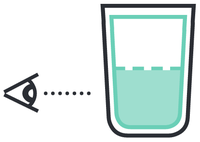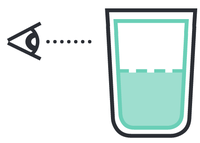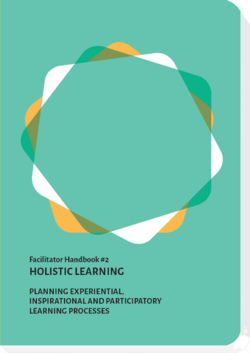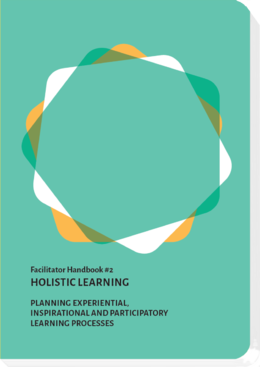Resource Orientation |
Deficit Orientation |
|
|
As resource-oriented facilitators, we can strengthen learners’ self-esteem and trust in their existing knowledge and skills. We might also create an atmosphere that fosters a critical view of skill development. It makes a difference to learners whether you present yourself as a “glass-is-half-empty” or a “glass-is-half-full” type of person and if you apply this perspective to them. This is not a question of methodology, rather of attitude – the right method and the wrong attitude simply don't fit together.
One way to show this attitude is to interact with the group. Be willing to share resources if you expect your participants to do so as well. Tell them about your experiences if you want them to share their own. Show a supportive attitude and mobilize solidarity with participants if you expect them to develop a trustful and open atmosphere for deeper experiential learning.
The attitude proves its worth in practice, especially in complex situations such as a lack of time, a goal dilemma or a conflict. Keeping this in mind, we remain friendly, active facilitators, no matter how challenging the circumstances are.
Facilitators take participants’ resources seriously by...
- Relating to others in a authentic way and equally.
- Making learning steps and goals transparent
- Adjusting the methods and the plan according to participants’ wishes and needs. Explaining their underlying needs as facilitators, negotiating fairly.
- Participation: Giving the group opportunities to decide on relevant issues and accepting their decisions
- Implementing Cooperative Learning
- Strengthen learners ability to find solutions, be careful and conscious with giving advice.
- Activating the learnes' ressources in the educational concept
- Respecting their rights and needs
Measuring Developments
Facilitators may observe or measure a development, the degree of knowledge and to some extent as well, how able a person is to use his or her skills. These informations help our participants to motivate for further self-learning.
Motivation
Willingness and ability to progress depend from motivation. Such, resource-oriented facilitation seeks to strengthen self-motivation and creates motivational conditions.
Nils-Eyk Zimmermann
Editor of Competendo. He writes and works on the topics: active citizenship, civil society, digital transformation, non-formal and lifelong learning, capacity building. Coordinator of European projects, in example DIGIT-AL Digital Transformation in Adult Learning for Active Citizenship, DARE network.
Blogs here: Blog: Civil Resilience.
Email: nils.zimmermann@dare-network.eu
Handbook for Facilitators: Holistic Learning
E. Heublein (ed.), N. Zimmermann (ed.) (2017). Holistic learning. Planning experiential, inspirational and participatory learning processes. Competendo Handbook for Facilitators.










